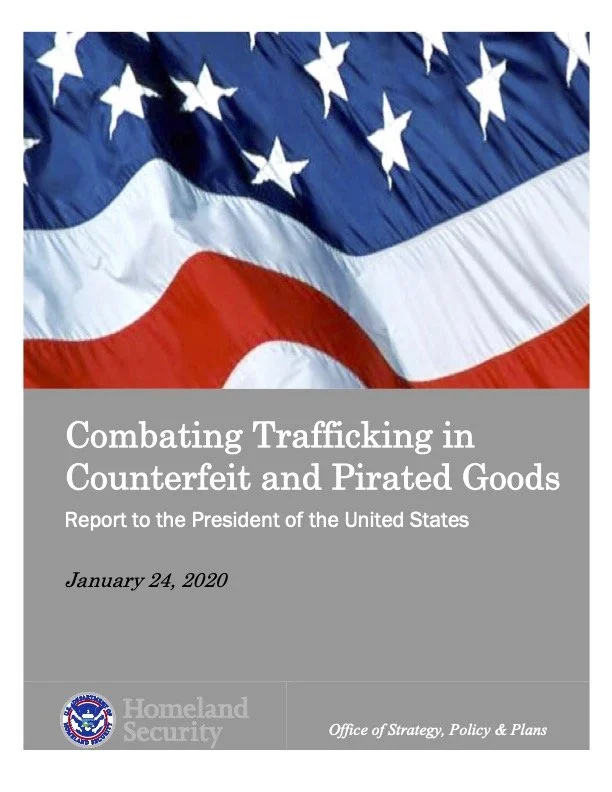Combating Trafficking in Counterfeit and Pirated Goods
by The U.S. Department of Homeland Security’s Office of Strategy, Policy, and Plans
The rapid growth of e-commerce has revolutionized the way goods are bought and sold, allowing for counterfeit and pirated goods to flood our borders and penetrate our communities and homes. Illicit goods trafficked to American consumers by e-commerce platforms and online third-party marketplaces threaten public health and safety, as well as national security. This illicit activity impacts American innovation and erodes the competitiveness of U.S. manufacturers and workers.
“Combating Trafficking in Counterfeit and Pirated Goods,” was prepared by the U.S. Department of Homeland Security’s Office of Strategy, Policy, and Plans. The report uses available data, substantial public input, and other information to develop a deeper understanding of how e-commerce platforms, online third-party marketplaces, and other third-party intermediaries facilitate the importation and sale of massive amounts of counterfeit and pirated goods. The report identifies appropriate administrative, statutory, regulatory, and other actions, including enhanced enforcement measures, modernization of legal and liability frameworks, and best practices for private sector stakeholders. These strong actions can be implemented swiftly to substantially reduce trafficking in counterfeit and pirated goods while promoting a safer America.
American consumers shopping on e-commerce platforms and online third-party marketplaces now face a significant risk of purchasing counterfeit or pirated goods. To build upon existing efforts to combat the flow of counterfeit goods, DHS – in consultation with the U.S. Department of Justice, U.S. Customs and Border Protection, and U.S. Immigration and Customs Enforcement – produced a series of proposals, which are found in “Stopping Counterfeit Trafficking on E-Commerce Platforms Through Fines and Civil Penalties,” to equip the U.S. Government with a strong framework of authorities to more easily conduct enforcement in the e-commerce environment and combat the flow of illicit goods entering the United States. These proposals range from improving information sharing and allowing summary forfeiture of IPR-infringing goods, to allowing the U.S. Government to seek injunctive relief and adapting fines to the e-commerce environment.
Washington, DC: U.S. Department of Homeland Security , 2020. 84p.


